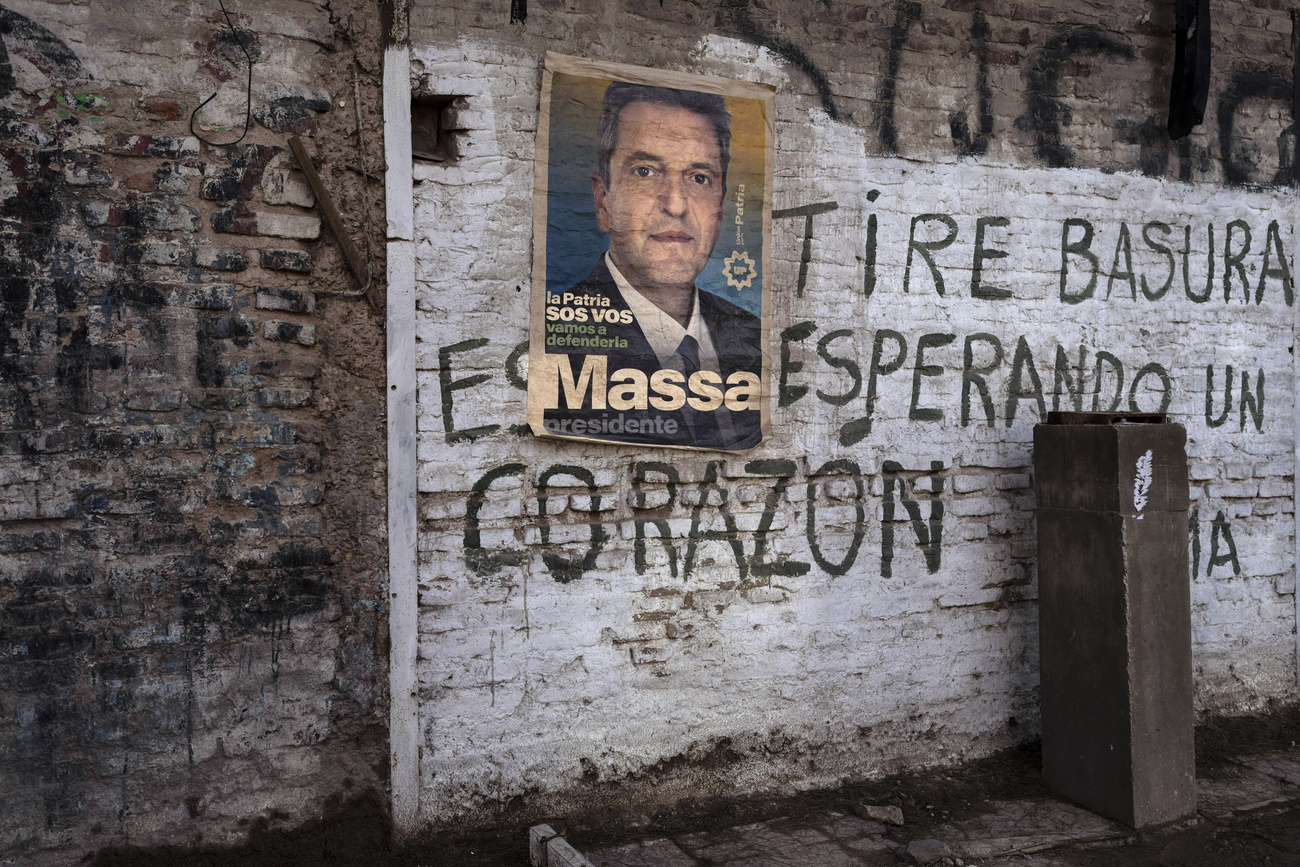Argentina and Switzerland: two national elections on one day

National elections will be held in both Argentina and Switzerland on October 22. Almost all the Swiss Abroad in Argentina are dual citizens. How does it feel to vote in two distinctively different democracies?
Most of the Swiss Abroad in Latin America live in Argentina. Argentina votes on October 22 2023 – the same day as Switzerland casts their ballots for the federal election.
Of the 15,000 Swiss living in Argentina, 95% also have an Argentine passport. This is the highest percentage of dual citizens in the Swiss diaspora worldwide.
This means that some people will cast their vote in both countries, on the same day. How does that feel? SWI swissinfo.ch asked two Swiss-Argentines.
Alexia Berni lives in Rosario, Argentina’s third-largest city. She says that she knows almost all the Swiss in Rosario. There is a sense of community among the Swiss there and the Swiss Association holds regular meetings. There are only a few expats among the Swiss in Argentina, the majority are dual citizens.
“The fact that there are so many second- or third-generation Swiss in Argentina is also due to the fact that you get an Argentine passport if you were born here and a Swiss passport because of your parents, i.e. according to the principle of descent,” Berni explains. The delegate of the Council of the Swiss Abroad is the daughter of a Swiss emigrant from Graubünden.
Voting is compulsory in Argentina. Anyone who fails to vote without a reason has to pay a small fine and is not allowed to stand for public office for three years.

To vote in Switzerland, Berni has to overcome several hurdles: “Participation in Switzerland requires more time and effort. To exercise our political rights from abroad, you have to register beforehand, pay the postage – which is not cheap for us – and then you have to hope.”
Hope that the election envelope arrives in time. “The biggest concern in these elections is whether we are able vote,” says Berni. Sometimes voting works in Switzerland, sometimes not.
Berni has followed up with the authorities in Switzerland about the voting processes for the Swiss Abroad. She was told that the municipalities in canton Graubünden send out voting documents for the Swiss Abroad a full week before the domestic mailing.
It cannot be taken for granted that the voting documents will arrive on time in Argentina: a Swiss Abroad from Córdoba, a city in central Argentina about 700km (435 miles) from Buenos Aires, even told SWI that he had never been able to vote in Switzerland because the voting documents had never arrived on time. Like Berni, he is convinced that e-voting would solve many problems for dual Swiss citizens and expats in Argentina.
Trend-setting elections in Argentina
Dual citizens in Argentina are keeping their fingers crossed that their votes will reach Switzerland in time. Meanwhile, an election campaign is raging in Argentina, the outcome of which will have a greater impact on the direction of the country than the outcome of the elections in Switzerland. In Switzerland, it is already considered an election victory if a party improves its result by one percentage point.
Carolina Poma, a dual citizen from Córdoba, is also involved in the Council of the Swiss Abroad. She says that “we are electing a new president in October in Argentina, at a time of great social tension. Poverty is increasing and politics is closely intertwined with the economy, inflation and insecurity in the country.”
Currently, it is uncertain whether Argentina will elect previous economy minister, Sergio Massa, as the new president and continue with a centre-left government, if the country will see a conservative overturn with the opposition candidate Patricia Bullrich, or if the outsider candidate Javier Milei will be elected as the new leader.

Poma, who votes “out of civic duty” in Switzerland and Argentina, does not know who she will vote for. But she says it will be difficult for the new government after the elections. “Whoever wins will have enormous difficulties governing,” says Poma.
These Argentine elections are getting special international attention because Milei’s electoral alliance won the August primaries with a 30% share, garnering the most votes in 16 of 24 constituencies. The Argentine media wrote the day after the elections of the “Milei tsunami” that swept the country.
Milei is a right-wing libertarian economist who advocates free love and at the same time wants to bring back a ban on abortions. He denies man-made climate change and the crimes committed by the military dictatorship from 1976 to 1983. If no candidate is ahead by a large enough margin following the elections on October 22, there may be another runoff election.

Berni says election campaigns in Argentina are always an emotional period. “The months before the elections are always very tense because Argentina is very polarised. There is only black or white, there are no grey areas. Because this time there are three camps of similar size, in the end there will be a dissatisfied majority, no matter who is elected.”
Voting in two realities
The elections in Argentina will decide in which political direction the country will go, at least for the next few years. In Switzerland, with its government system that distributes power between the majority parties, it is clear even prior to the elections that power will remain divided between the parties. For Poma, it feels like she can vote in “two very different realities”. She perceives Swiss politics as harmonious and organised, “no matter which party gets the most votes”.
However, a new study shows that a majority of Swiss voters also perceive their politics as polarised.
Asked about this by SWI, Berni says, “the difference is that in Switzerland there may be polarised opinions, but the consequences for the political direction of the country are less great.” In Argentina, on the other hand, there are big consequences for living together if one of the other party wins. “In Switzerland, people have differentiating opinions, but in Argentina polarisation has more socio-political consequences,” says Alexia Berni.
Berni has already decided who she will vote for – in Argentina and in Switzerland.
Edited by David Eugster/amva

In compliance with the JTI standards
More: SWI swissinfo.ch certified by the Journalism Trust Initiative


You can find an overview of ongoing debates with our journalists here. Please join us!
If you want to start a conversation about a topic raised in this article or want to report factual errors, email us at english@swissinfo.ch.